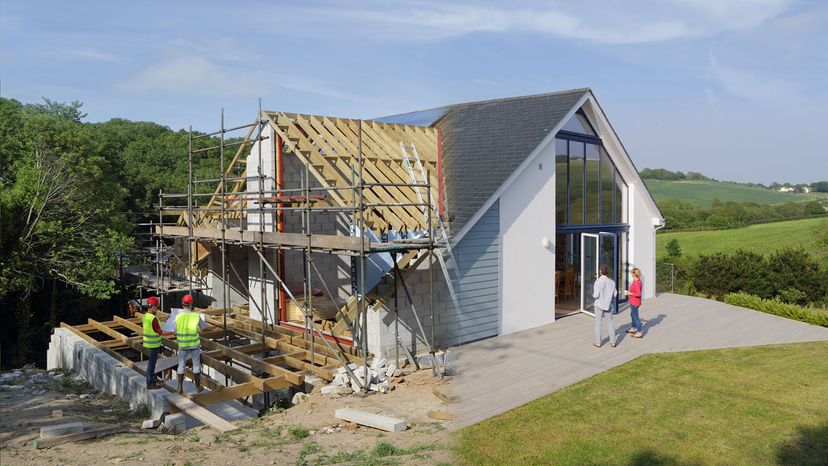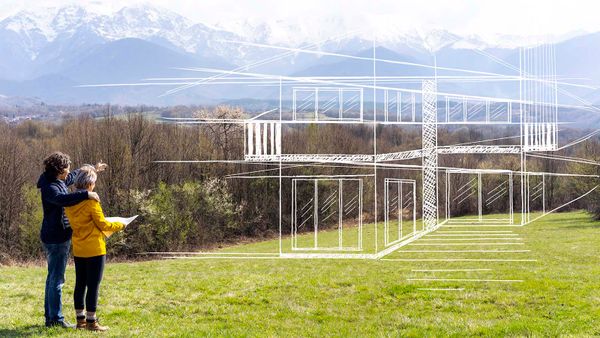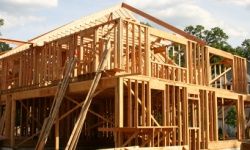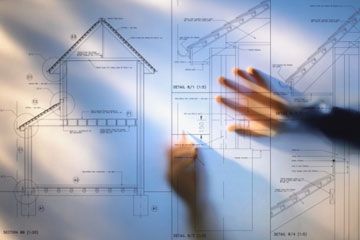According to May 2023 data from the U.S. Census Bureau, the average sales price of a new single-family home was $487,300, up from $464,200 in 2021 (median sales price was $416,300). The average home-building cost was $392,241, or $153 per square foot, according to the National Association of Home Builders. On the surface, that's a price difference of over $95,000.
But it's important to note that those numbers aren't an apples-to-apples comparison. The average sales price of $487,300 was what homebuyers paid for both the house and the land it's sitting on. The $392,241 average cost of building a home was only the "contract price" charged by the contractor to build the home. The cost of the land, if needed, was separate.
What does that mean? It means that if you already own land, then it's most likely cheaper to build your own place. But if you don't own land, you might not save anything compared to buying a newly built home. When the National Association of Home Builders (NAHB) surveyed its membership in 2022 (the most recent time this survey was done), it found that the average lot cost nearly $114,622 for an average lot size of 17,218 square feet or 1,580 square meters, the smallest square footage since 2011. This is a big increase in cost and decrease in size from 2020, when the average lot cost was $90,00 for an average 22,000 square-foot (2,044 square-meter) lot.
It's also important to note that the Census Bureau figures included sales of existing homes. The NAHB put the sales price of a newly built single-family home at $644,750, including the cost to build the home, lot cost, marketing cost, sales commission and profit.
Keep in mind that the costs listed in this article are for a contractor-built home. In other words, we're assuming that you are hiring a general contractor to build the home. General contractors add 20 to 30 percent to the total cost of building a home because that's how they're compensated for hiring and managing all of the subcontractors.
Twenty to 30 percent is a lot of money! You may be tempted to act as your own general contractor and potentially save tens of thousands of dollars, but it might not be worth it. First of all, it's a huge time commitment to act as your own contractor, and if you're new to construction, you're likely to make a few big and expensive mistakes. Not to mention, some subcontractors will charge you more than they would a professional contractor, so those 20 to 30 percent savings may get eaten up by higher materials and labor costs. Contractors will also know which building permits you need and when to apply for them.



